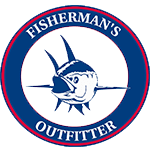Hello world!
February 27, 2014Fishing Kayak Mods
March 5, 2014
Bass fishing at night is a really exciting way to fish. Gone are the crowds, the water skiers, and the tubers. Many of the daytime distractions are no longer a nuisance, allowing you to focus on what’s most important: fishing.
Night fishing does have something special about it. Although all the same rules and tricks of the trade apply for night fishing as for daytime fishing, there are a few things that differentiate it in terms of prep and process that you should keep in mind to ensure a safe and successful trip:
Use your senses.
Visibility is a factor in nighttime fishing. Not having a large sight range means having to rely on other senses, like sound, even more.
Know before you go.
Doing your research and knowing the area before you go night fishing is also incredibly important, since being able to see things like logs, rocks, and shallow water is harder in the evening hours. If you are unfamiliar with the body of water, it is suggested that you do a daytime scout of the area before night fishing.
Have nighttime gear.
Besides having tools like a fish finder (a great idea when night fishing because your senses are somewhat impaired) there are a few modifications for gear that are smart to have when night fishing. Proper lighting for your boat is crucial for the safety of yourself and your passengers. Your bait and lures may also shift for the change in hour. Worms, spinner baits, and lizards are common for nighttime bass fishing, and lures in dark tones like blue and black help to camouflage your gear and entice the fish subtly.
Another thrilling option for nighttime fishing is to have a top water lure. You can hear it … but you can’t see it! Using a top water lure for fishing at night really adds to the drama of the experience, and forces you to rely on your hearing instead of sight to snag that big fish.
Keep it safe.
It is, of course, important to have safety gear readily available whenever you are fishing, but especially at night. If you’re on a boat, then life preservers, flares, a first aid kit, water, a whistle, and flashlights are key. Regardless of how well you know the waters, neglecting to store some safety gear away for an emergency can make all the difference when faced with the unexpected.
